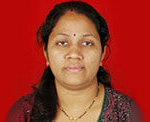Department of History
About the department
Establishment- UG 1945, PG – 2007
| Computer | 01 |
| Printer | 01 |
| Internet | Yes |
Teaching
Visiting Faculty
UG
| Class and Semester | Course Nomenclature | Type (Optional, Elective, Compulsory, etc) | Link |
|---|---|---|---|
| F. Y. B. A. Semester I | History of Modern India (1857-1947) | Compulsory | View PDF |
| F. Y. B. A. Semester II | History of Modern India: Society and Economy | Compulsory | |
| S. Y. B. A. Semester III | Paper – II Landmarks in World History, 1300 A.D.-1945 A.D.
Paper – III Ancient India from Earliest Times to 1000 A.D. |
Compulsory | View PDF |
| S. Y. B. A. Semester IV | Paper – II Landmarks in World History, 1300 A.D.-1945 A.D. Paper – III Ancient India from Earliest Times to 1000 A.D. |
Compulsory | |
| T. Y. B. A. Semester V | History of Medieval India (1000 CE – 1526 CE) |
Core Course IV | View PDF |
| History of Modern Maharashtra (1818 CE-1960 CE) |
Core Course V | ||
| Media and Communication | Elective Course VI B (With Project) | ||
| T. Y. B. A. Semester VI | History of Medieval India (1526 CE – 1707 CE) | Core Course IV | |
| History of Contemporary India (1947 CE- 2000 CE) | Core Course V | ||
| Media and Communication | Elective Course VI B (With Project) |
PG
| Class and Semester | Course Nomenclature | Type (Optional, Elective, Compulsory, etc) | Link |
|---|---|---|---|
| M. A. Semester – I | Research Methods in History | Core Paper I | View PDF |
| Social, Economic and Administrative History of Early India (up to 1000 CE) | Core Paper II | ||
| Social, Economic and Administrative History of Medieval India (1200 CE – 1700 CE) | Core Paper III | ||
| Social, Economic and Administrative History of Modern India (1757 CE – 1947 CE) | Core Paper IV | ||
| M. A. Semester – II | Philosophy of History | Core Paper V | |
| History of Contemporary India(1947 CE – 2000 CE) | Core Paper VI | ||
| History of Contemporary India(1947 CE – 2000 CE) | Core Paper VI | ||
| Milestones in World History (1757 CE – 1960 CE) | Core Paper VII | ||
| History of Emancipatory Movements in the Modern World | Core Paper VII | ||
| M. A. Semester – III | History of Indian Cinema and Social Realities | Elective Group I | View PDF |
| History of Labour and Entrepreneurship in India (1830 CE – 2000 CE) | Elective Group II | ||
| Indian National Movement (1857 CE to 1947 CE) | Elective Group III | ||
| Social, Economic and Administrative History of the Marathas (1630 CE - 1818 CE) | Elective Group IV | ||
| History of Modern Europe | Elective Group V | ||
| M. A. Semester – IV | Sources in Historical Research | Ability Enhancement Course VI | |
| Evolution of Human Rights in the 20th Century | Interdisciplinary Course VII | ||
| Project Based Course | Project Based Course VIII |
Other (Certificate, Diploma, Advanced Courses) Add-on Courses
Certificate course in Modi Script – This add-on course is in collaboration with Department of Archives, Government of Maharashtra. Duration: One week in second half of academic year.
Certificate course in Study of Forts –Department organize this add-on course in collaboration with Bharat Itihas Sanshokhak Mandal, Pune. Duration: One week in second half of academic year.
Programme & Course Outcomes
Programme Specific Outcomes
MECHANISM OF COMMUNICATION OF PSOs and COs
The Programme Specific Outcomes and the Course Outcomes of UG and PG (in History) programmes are communicated to the students and teachers by
Placing them in college website
Displaying them on the notice boards in the department classrooms at the beginning of the academic year
Discussing them (module wise) during the syllabus presentation (PPT) at the beginning of each semester
PSO - On Completion of the BA (History) Students shall be able to:
Study the history of India (specially making of modern India and the struggle for independence) and landmarks in world history.
Understand the facts, chronology and the scope of Indian History.
Enable the students to understand the political, socio-economic and cultural developments in the period under study.
Have accurate knowledge of the most significant events and personalities of the period under study and encourage understanding of the making of the modern world.
PSO - On Completion of the MA (History) Students shall be able to:
Understand the historiography and theory related to historical research, writing, and presentation.
Enable the students to understand the evolution of socio-cultural, religious and political processes in the period of ancient to post-independence Indian history.
Introducing students with main emancipatory movements and making of the modern world.
Understanding of the regional history (of Marathas).
Acquire basic skills for conducting historical research including locating, utilizing, and analyzing sources.
Course Outcomes
B.A
| Sr. No | Course / Paper Title | Outcome |
|---|---|---|
| 1 | History & Archaeology a) FYBA History – History of Modern India (1857-1947) Semester – I b) History of Modern India: Society and Economy. Semester –II (Credit Based Semester and Grading System with effect from the academic year 2016–2017) |
i. The course is designed to make the student aware about the making of modern India and the struggle for independence aware about the making of modern India and the struggle for independence. |
| 2 | History and Archaeology a) SYBA History – Paper-II Landmarks in World History, 1300 A.D.-1945 A.D. SEMESTER–III & IV b) SYBA History – Paper- III Ancient India from Earliest Times to 1000 A.D. SEMESTER–III & IV (Choice Based Credit System with effect from the Academic year 2017-2018) |
i. To enable the students to comprehend the transition of Europe from medieval to modern times and its impact on the world. To provide accurate knowledge of the most significant events and personalities of the period under study and encourage understanding of the making of the modern world. ii. To acquaint the students with different sources of Ancient Indian History. To enable the students to understand the political, socio-economic and cultural developments in the period under study and appreciate the rich cultural heritage in India. |
| 3 | a) TYBA History – Core Course IV History of Medieval India (1000 CE – 1526 CE) Semester - V b) TYBA History – Core Course V History of Modern Maharashtra (1818 CE-1960 CE) Semester - V c) TYBA History – Elective Course VI B (With Project) Media and Communication Semester – V d) TYBA History – Core Course IV History of Medieval India (1526 CE – 1707 CE) Semester – VI e) TYBA History –Core Course V History of Contemporary India (1947 CE- 2000 CE) Semester – VI f) TYBA History – Elective Course VI B (With Project) Media and Communication Semester – VI |
i. To acquaint the students with the history of early Medieval India that laid the foundation of the Sultanate in India. To study the contribution of Vijayanagar and Bahamani kingdoms to Medieval Indian History. To examine the administrative, socio-economic and cultural aspects of Medieval India. ii. To acquaint students with regional history. To understand political and socio-economic developments during the 19th and 20th centuries. To create understanding of the movement that led to the formation of Maharashtra. iii. To inform students about the Fundamentals of Communication. To introduce students to Oral Traditions in Communication and the field of Journalism. To familiarize students with the various types of Audio-Visual Media. iv. To acquaint the students with the history of India since the emergence of the Mughal rule. To understand administration of the Mughal Empire. To study the rise of the Maratha Power. v. To understand the process of making the Constitution and the Integration and Reorganization of Indian States. To acquaint the students with the political developments in India after Independence. To comprehend the socio-economic changes and progress in science and technology in India. vi. To acquaint students with the various types of Media and Communication. To inform students of the developments in Information Technology. To understand the impact of Media on Society. |
M.A
| Sr. No | Course / Semester | Paper | Outcome |
|---|---|---|---|
| 1 | History & Archaeology SEMESTER – I(Credit Based Semester and Grading System with effect from the academic year 2016–2017) |
a) Core Paper I. – Research Methods in History
b) Core Paper II. – Social, Economic and Administrative History of Early India (up to 1000 CE) c) Core Paper III. – Social, Economic and Administrative History of Medieval India (1200 CE – 1700 CE) d) Core Paper IV. – Social, Economic and Administrative History of Modern India (1757 CE – 1947 CE) |
i) To teach students the basic scientific methodology and tenets as implemented in history writing.
ii) To enable students to understand with the evolution of sociocultural, religious and political processes in the early Indian past on the basis of which the plural Indian society was formed. iii) To facilitate students with the evolution of socio-cultural, religious and political processes in Medieval Indian past and introducing them to important social, cultural ideas and institutions. iv) To facilitate students with the evolution of socio-cultural, religious and political processes in Modern Indian History as well as impact of British rule in India |
| 2 | SEMESTER – II | a) Core Paper V. – Philosophy of History b) Core Paper VI. – History of Contemporary India(1947 CE – 2000 CE) c) Core Paper VII. – Milestones in World History (1757 CE – 1960 CE) d) Core Paper VIII. – History of Emancipatory Movements in the Modern World |
i) To equip students with the trends of the comprehension of the past and to make them understand the relationship between Philosophy and History. ii) To equip students with main events and processes of Post-Independence Indian history. iii) To equip students with main events and processes of Modern World History. iv) To make students aware about social movements of the world and introducing her/him with main emancipatory movements of the modern world. |
| 3 | History & Archaeology Semester III: Five Groups of Elective courses from parent Department (Credit Based Semester and Grading System with effect from the academic year 2017–2018) |
a) Elective Group I: H. History of Indian Cinema and Social Realities b) Elective Group II : D. History of Labour and Entrepreneurship in India (1830 CE – 2000 CE) c) Elective Group III: B. Indian National Movement (1857 CE to 1947 CE) d) Elective Group IV: A. Social, Economic and Administrative History of the Marathas (1630 CE - 1818 CE) e) Elective Group V: D. History of Modern Europe |
i) To trace the evolution of Indian Cinema. To understand and contextualize the socio-political realities as depicted through cinema. To study the impact of parallel cinema on society and understand the new trends emerging in Indian cinema ii) To introduce students to the economic history of modern India with a specialization in the history of labour and entrepreneurship. To promote research in the areas of labour and business history in Mumbai which is the financial capital of the country and to build up ties with labour and business archives which have been set up in the city and various parts of India. iii) To understand the factors leading to the rise of Nationalism. To understand the constitutional development and the rise of new forces. iv) To create an understanding of the regional history. To orient student with various sources of Maratha history. To understand the socio-economic life and administration of the Marathas. v) To orient the students with political history of Modern Europe. To understand the economic transition in Europe during the 18th and 19th Century Europe. To understand the impact of the world war. specialization in the history of labour and entrepreneurship. To promote research in the areas of labour and business history in Mumbai which is the financial capital of the country and to build up ties with labour and business archives which have been set up in the city and various parts of India. iii) To understand the factors leading to the rise of Nationalism. To understand the constitutional development and the rise of new forces. iv) To create an understanding of the regional history. To orient student with various sources of Maratha history. To understand the socio-economic life and administration of the Marathas. v) To orient the students with political history of Modern Europe. To understand the economic transition in Europe during the 18th and 19th Century Europe. To understand the impact of the world war. |
| 4 | Semester IV: Three Groups of Elective Courses from parent Department | a) Ability Enhancement Course VI: A. Sources in Historical Research b) Interdisciplinary Course VII: N. Evolution of Human Rights in the 20th Century c) Project Based Course VIII: |
i) To understand the historiography and theory related to historical research, writing, and presentation. The course focuses on building basic skills for conducting historical research including locating, utilizing, and analyzing sources. Guidelines for Citation and Historical Writing are discussed. ii) To acquaint Students about evolution and importance of Human Rights. |
| Name | Organization | Special Achievements |
|---|---|---|
| Ketaki Shetye | SNDT University, Mumbai | Assistant Professor |
| Ganesh Kulkarni | Chaphe College, Chaphe | Assistant Professor |
| Abhijit Patwardhan | Marriott Hotel, Pune | Beverage Manager |
| Rajendra Valavi | Maharashtra Police | – |
| Govind Vasave | Gogate Jogalekar Colllege | Library Assistant |





